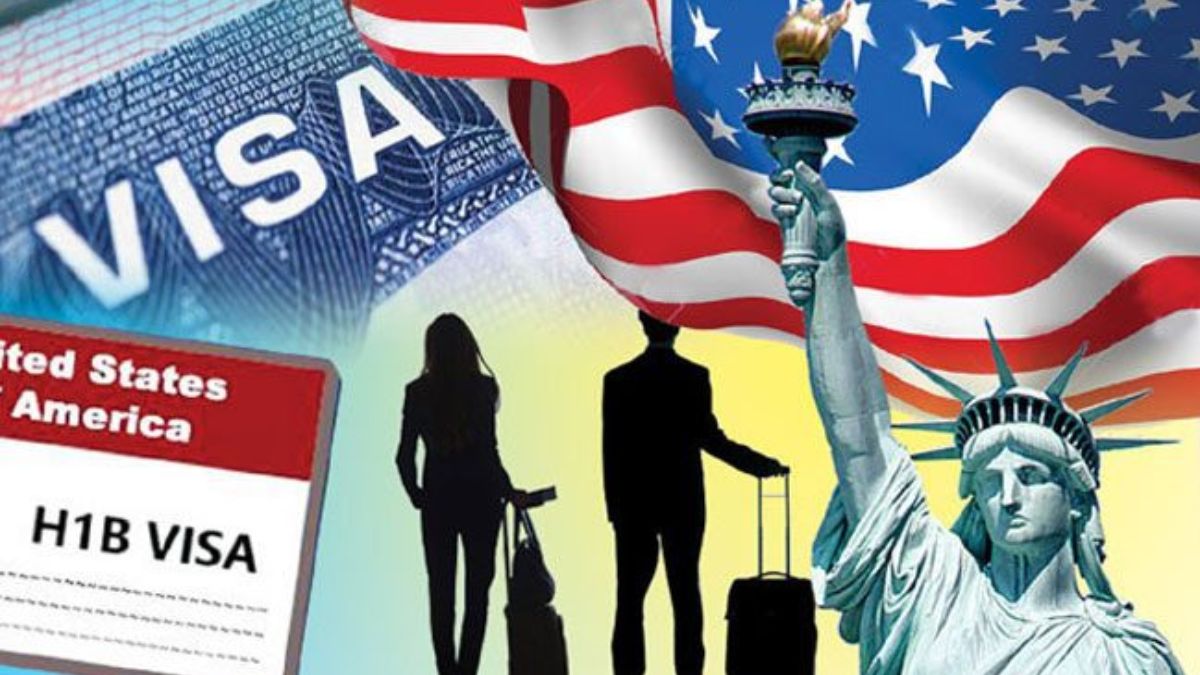In a significant development with wide-reaching implications for immigrants, a U.S. federal judge has given the green light to a controversial immigration rule mandating noncitizens to register with the federal government and carry valid identification documents at all times. This directive applies not only to undocumented immigrants but also to legally residing individuals, including those on H-1B visas, F-1 student visas, green cards, and other legal statuses.
The move, originally proposed during the Trump administration, was recently upheld by U.S. District Judge Trevor McFadden in Washington, D.C., who ruled that the plaintiffs lacked standing to challenge the policy in court.

DHS Issues New Directive: Mandatory Document Carry for All Noncitizens
The Department of Homeland Security (DHS) confirmed in a statement that all noncitizens aged 18 and older must carry proof of their immigration status at all times. This directive is not limited to individuals without legal status; it applies to everyone who is not a U.S. citizen, including those already registered with U.S. immigration authorities.
DHS Statement:
“This administration has directed DHS to prioritize enforcement. There will be no sanctuary for noncompliance.”
This statement signals a zero-tolerance policy and increased immigration enforcement. Legal immigrants who fail to carry documents may face complications during checks or routine encounters with immigration officers or law enforcement.
Who Needs to Carry Documents and What Should Be Included?
Even those with valid visas and legal status must comply. Here’s a breakdown of who’s affected and what documents they must keep on hand:
| Category | Required Documentation |
|---|---|
| H-1B Visa Holders | Visa stamp, I-797 Approval Notice, I-94 record |
| F-1 Student Visa Holders | Visa stamp, Form I-20, I-94 record, university ID |
| Green Card Holders | Permanent Resident Card (Green Card) |
| EAD Holders (Work Permits) | Employment Authorization Document, I-94 |
| Visitors or B1/B2 Holders | Valid visa and passport, I-94 |
| Dependent Visa Holders | Proof of relationship, valid dependent visa, I-94 |
In addition, children turning 14 must re-register with the authorities and submit their biometric data within 30 days of their birthday.
Legal Pushback: Civil Rights Groups Voice Concern
The enforcement of this rule has not gone unchallenged. Several advocacy groups, including the Coalition for Humane Immigrant Rights and the United Farm Workers of America, filed lawsuits arguing that the rule could lead to unjust harassment and racial profiling.
However, Judge McFadden dismissed the lawsuit on procedural grounds, stating:
“Many of their harms are too speculative, and they have failed to show that the rule will erode their core missions.”
Immigration attorneys and advocacy organizations argue that the rule places legal immigrants in a precarious position, forcing them to choose between privacy and legal compliance.
Practical Implications for H-1B Visa Holders and International Students
For the thousands of Indian nationals and other foreign workers residing in the U.S. under H-1B status, this new rule represents a notable shift in how everyday life may be conducted. Previously, while documents were always necessary during job transitions, airport travel, or USCIS filings, there was no explicit rule requiring round-the-clock physical possession of immigration papers.
Now, forgetting your I-94 or approval notice at home while stepping out could result in unwanted legal trouble or delays in verifying your status during encounters with law enforcement.
Compliance Tips for Legal Immigrants
To navigate the new rules safely, noncitizens should take the following precautions:
-
Keep digital copies of all immigration documents on a secure cloud platform.
-
Carry physical copies of essential documents, especially I-94 and visa approval notices.
-
Inform dependents and children about documentation requirements, especially those nearing age 14.
-
Know your rights: Understand when and how federal or state officers can ask for documentation.
-
Consult immigration counsel if unsure about your documentation obligations or changes to your immigration status.
Frequently Asked Questions
Q1. Does this new rule affect legal visa holders like H-1B, F-1, or green card holders?
A: Yes. Even those legally residing in the U.S. must carry immigration documents at all times as per the DHS directive.
Q2. What happens if I am stopped without documents?
A: While you may not be detained immediately, it can result in delays, verification issues, or potential citations, depending on the situation.
Q3. Are digital copies of documents sufficient?
A: While helpful, only original or certified physical copies are recognized as official proof during enforcement checks.
Q4. Do children under 18 also have to carry documents?
A: The requirement applies to individuals aged 18 and above, but children turning 14 must re-register and provide fingerprints.
Q5. Is this rule permanent?
A: As of now, it is enforced under existing policy, but future administrations or court rulings could alter or revoke it.
This directive emphasizes the growing intensity of immigration enforcement in the U.S., even for those legally present. Staying informed and prepared is now more important than ever for immigrants navigating life in America.
Click here to know more.



